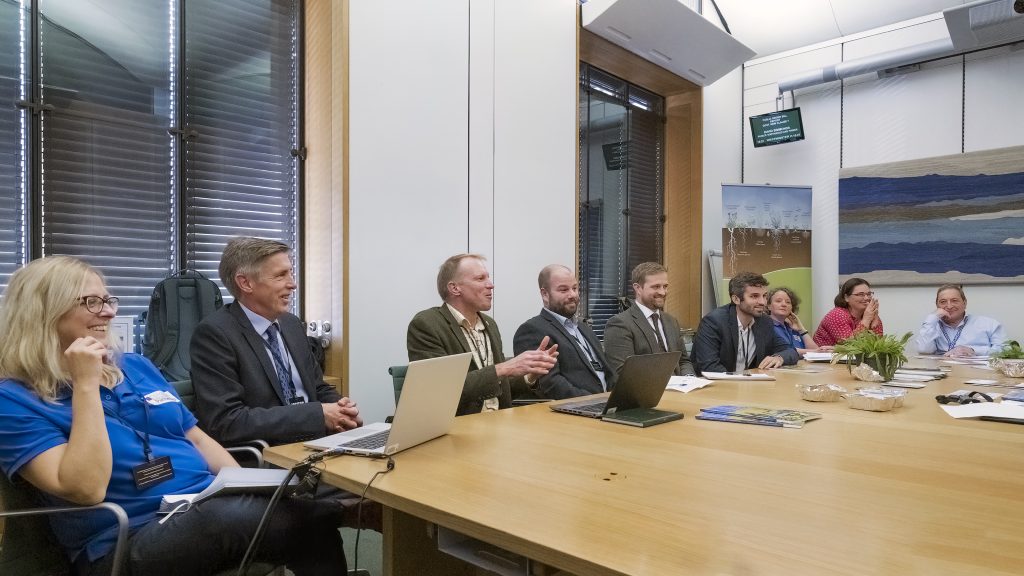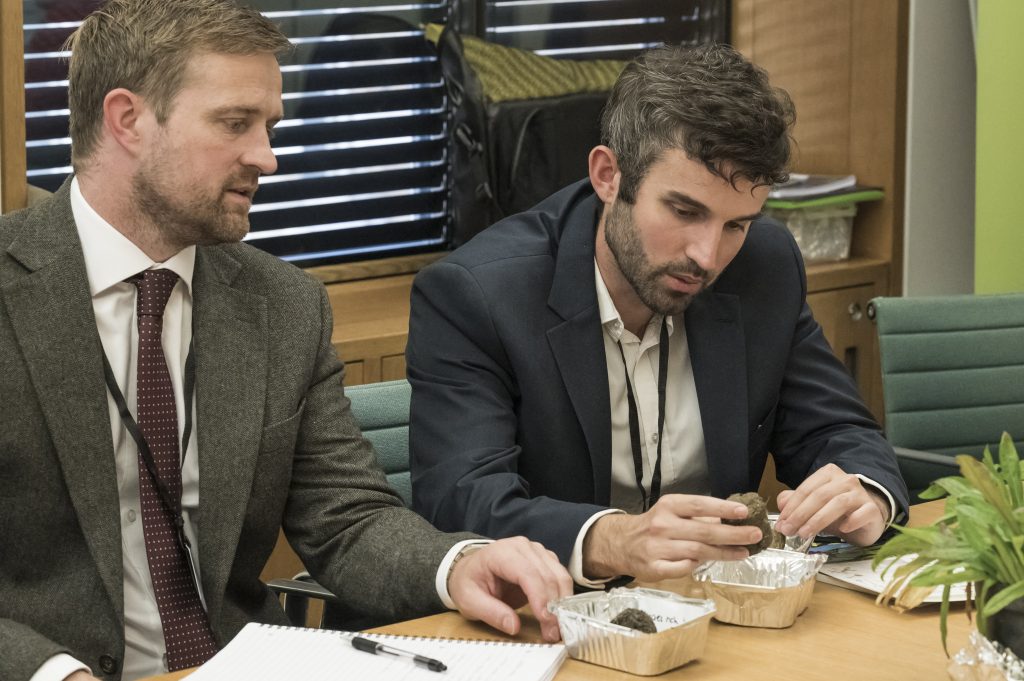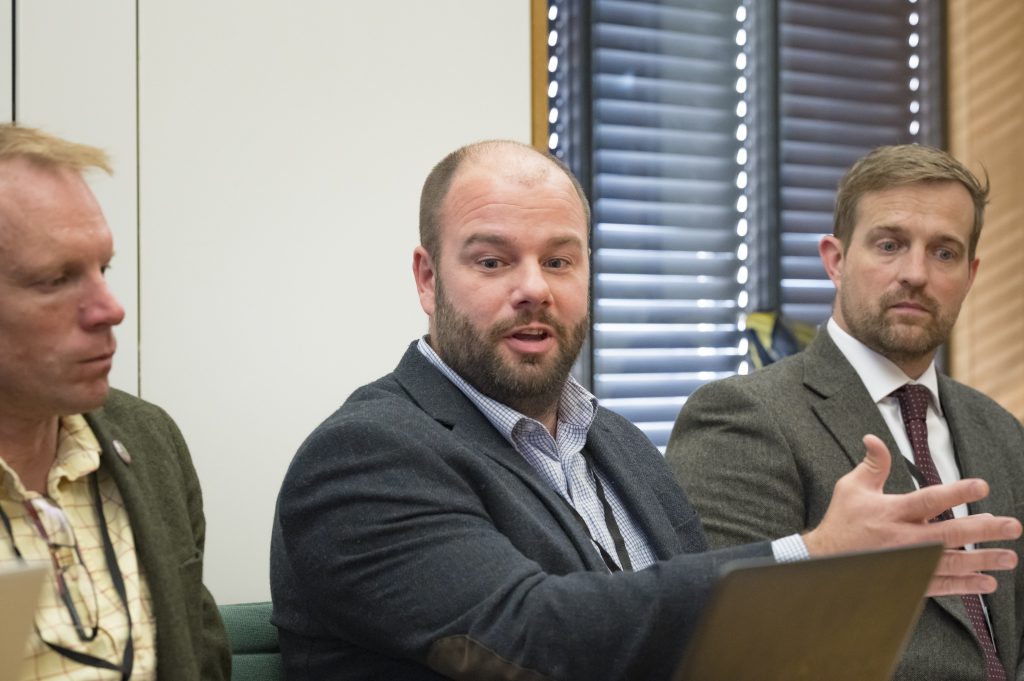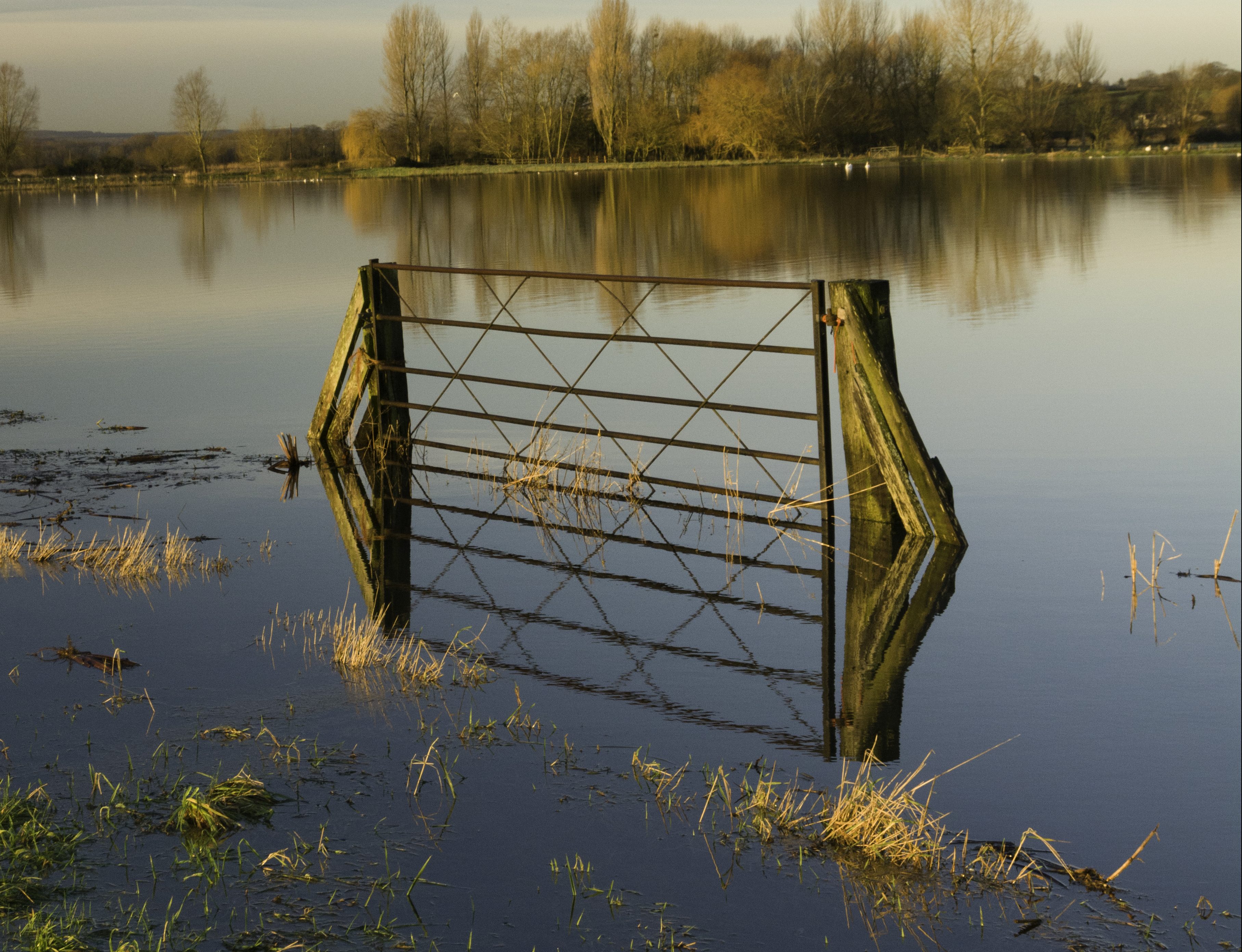MPs and Peers Spotlight Importance of Delivering Resilient Floodplains for Nature and Tackling Climate Emergency
On Tuesday 18 October, the All-Party Parliamentary Group (APPG) for Nature hosted a parliamentary event with the Floodplain Meadows Partnership to discuss the importance of floodplain meadows, challenges in realising their full potential, and opportunities to address these through Environmental Land Management Schemes.
Barry Gardiner MP chaired the event as head of the APPG for Nature, with John McNally MP and Baroness Bennett of Manor Castle joining the discussions.

Left to right: Barry Gardiner MP, Baroness Bennett of Manor Castle, John McNally MP, John McNally MP with hay sample from meadow. Photography by David McKibbin.
Professor David Gowing from the Open University opened talks, setting out the history of the UK’s floodplains and the huge diversity of plants and animals that rely on them. Professor Gowing also called out the massive losses this habitat has seen over recent decades, with a potential loss of up to 99% and only 3000 hectares remaining.
Not only are these habitats important for nature, but have been overlooked in the push to deliver large-scale carbon storage in habitats. Governments have focused mostly on tree planting and peatland restoration, which do absorb and store large volumes of carbon, but recent studies highlighted by Professor Gowing show floodplain meadows offer an alternative. When comparing the top 10cm of soil with other habitats soils beneath floodplain meadows store comparable amounts of carbon to ancient woodland, and while peat stores more, floodplain meadow soils can go much deeper storing huge amounts of carbon below 10cm.

Left: Olivia Nelson and Professor David Gowing, Open University. Andy Rumming (third from left) delivering his perspective on farming floodplain meadows. Photography by David McKibbin.
Andy Rumming, a Cricklade-based farmer who farms grass-fed beef cattle on a biodiverse floodplain meadow also joined the discussion to offer his perspective on how floodplain meadows can be managed in a profitable and nature-friendly system. Andy also discussed the need for agricultural payments, such as the forthcoming Environmental Land Management Schemes, to support tailored options for floodplains rather than a ‘one size fits all’ approach, and to develop the traditional skills needed to manage floodplains in a younger farming population.
Ecologists and environmental managers were also in attendance, including CIEEM’s Strategic Policy Panel Chair Ben Kite, EPR Ltd., and members Gavin Wilson, RSK Biocensus, and Craig Llewellyn, Atkins, raising the potential for schemes such as Biodiversity Net Gain and Nutrient Neutrality to deliver widespread floodplain restoration.

Craig Llewellyn, Atkins and James Hildreth, Middlemarch Environmental with floodplain and arable soil samples. Photography by David McKibbin

CIEEM Strategic Policy Panel Chair Ben Kite, EPR Ltd discussing nutrient neutrality. Photography by David McKibbin
Floodplains can deliver a whole suite of public goods if allowed to do so, including flood management, agricultural production, biodiversity conservation, carbon sequestration, water quality improvement, sediment management plus a wealth of cultural and aesthetic services. The need for these services will only increase as the climate changes.
The APPG for Nature will produce a report of the discussions and send this to Defra and environment-focussed select committees to highlight the multi-purpose potential of floodplains and how policy can best support them.
The APPG for Nature provides a forum for engaging and inspiring parliamentarians and others with the natural world, the major threats that it faces today, and the positives that come from a healthy natural environment. CIEEM provides the Secretariat for the Group and organises an engaging and inspiring programme of activities to highlight the importance of nature for its enjoyment and to human well-being, as well as its necessity for the economy and society.
The Floodplain Meadows Partnership (FMP) brings together scientists and practitioners, developing understanding based on sound science of how to manage, restore and create species rich seasonally inundated floodplain grasslands and the multiple benefits they provide. The Partnership is led by the Open University and supported by statutory and non-Government organisations http://www.floodplainmeadows.org.uk/content/steering-group. The FMP has also played a leading role in studying the benefits floodplain meadows can provide for mitigation and adaptation to climate change.
